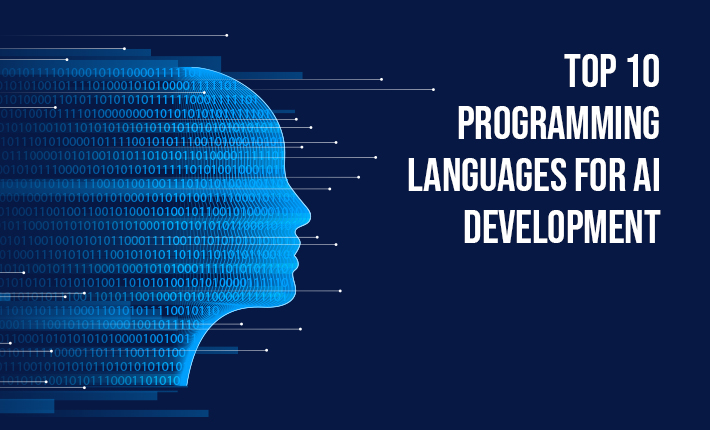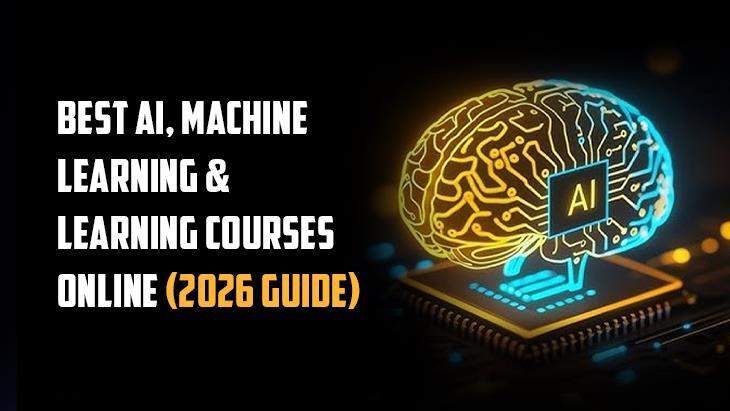Artificial Intelligence (AI) has transformed numerous industries, making it essential for developers to choose the right programming language to leverage its power. With a plethora of options available, this article aims to highlight the top 10 programming languages for AI development. Each language possesses unique features, libraries, and frameworks that cater to different aspects of AI, such as machine learning, natural language processing, and computer vision. By understanding the strengths and use cases of these languages, developers can make informed decisions and embark on successful AI projects.
1. Python: The Powerhouse of AI
Python reigns supreme as the most popular programming language for AI development. Its simplicity, readability, and vast ecosystem of libraries and frameworks, such as TensorFlow, PyTorch, and scikit-learn, make it an excellent choice for various AI applications. Python's versatility enables developers to handle complex tasks like data manipulation, statistical analysis, and machine learning with ease. Furthermore, its extensive community support and active development community contribute to its popularity among AI practitioners.
2. R: Statistical Analysis and Data Visualization
R is a language renowned for its statistical analysis and data visualization capabilities, making it an indispensable tool for data scientists. It provides a comprehensive suite of packages, such as caret, ggplot2, and dplyr, which facilitate data manipulation, exploratory analysis, and visual representation. R's strengths lie in its ability to handle large datasets and perform advanced statistical modeling. Researchers and data scientists working on AI projects that involve statistical analysis and data visualization often prefer R.
3. Java: Scalability and Enterprise Integration
Java, with its scalability, robustness, and extensive libraries, plays a significant role in AI development for enterprise applications. It excels in projects that require high performance, large-scale processing, and seamless integration with existing enterprise systems. Java's libraries, such as Deeplearning4j and DL4J, provide support for building deep learning models. Its platform independence and strong community support make it an ideal choice for AI projects in enterprise environments.
4. C++: High Performance and Efficiency
C++ is renowned for its high performance and efficiency, making it an optimal choice for computationally intensive AI applications. It enables developers to have fine-grained control over hardware resources and memory management, making it suitable for tasks like computer vision and robotics. C++'s integration with popular libraries like OpenCV and CUDA facilitates accelerated computing and optimization. Although C++ requires more development time and expertise compared to other languages, its ability to achieve real-time processing and its use in resource-constrained environments make it invaluable for certain AI projects.
5. Julia: Speed and Productivity
Julia is a relatively new language gaining traction in the AI community due to its focus on speed and productivity. With its just-in-time (JIT) compilation and dynamic typing, Julia offers efficient execution and numerical computing capabilities. It combines the performance of languages like C++ and Fortran with the ease of use of languages like Python. Julia's ecosystem, featuring libraries such as Flux and Knet, empowers developers to build high-performance AI models. Researchers and developers exploring cutting-edge AI techniques find Julia appealing due to its ability to quickly prototype and execute computationally intensive tasks.
6. MATLAB: Prototyping and Simulations
MATLAB is a widely used language for AI development, particularly in academia and engineering domains. It offers a comprehensive environment for prototyping, simulation, and data analysis. MATLAB's vast toolbox and built-in functions simplify complex mathematical operations, signal processing, and image/video processing tasks. It provides seamless integration with hardware devices and supports code generation, making it suitable for AI applications in robotics and control systems. MATLAB's extensive documentation, interactive development environment, and strong community support make it an attractive choice for researchers and engineers involved in AI development.
7. Scala: Scalable and Functional AI
Scala, a statically typed language, combines object-oriented and functional programming paradigms. It runs on the Java Virtual Machine (JVM) and seamlessly integrates with existing Java libraries. Scala's concise syntax, immutability, and support for parallel processing make it well-suited for building scalable AI applications. It offers powerful frameworks like Apache Spark, which enables distributed data processing and machine learning. Scala's compatibility with Java and its functional programming capabilities make it a viable choice for AI projects that require scalability, concurrency, and fault-tolerance.
8. Lisp: AI Pioneering Language
Lisp, one of the oldest programming languages, has been influential in the field of AI since its inception. Its unique homoiconic syntax, metaprogramming capabilities, and support for symbolic computation make it well-suited for AI research and development. Lisp dialects like Common Lisp and Clojure provide powerful libraries and frameworks for AI tasks, such as expert systems, natural language processing, and machine learning. Lisp's ability to manipulate code as data and its flexibility in expressing complex algorithms make it a favorite among AI enthusiasts and researchers pushing the boundaries of AI technology.
9. Prolog: Logic Programming for AI
Prolog is a logic programming language specifically designed for AI applications. Its declarative nature and built-in support for rule-based programming make it an excellent choice for tasks that involve symbolic reasoning, expert systems, and knowledge representation. Prolog's ability to perform automated theorem proving and its emphasis on logical inference make it useful in areas like natural language understanding and planning. While Prolog may not be as widely adopted as other languages in the AI community, its unique capabilities in logic-based reasoning make it a powerful tool for specific AI applications.
10. Go: Simplicity and Concurrency
Go, developed by Google, is gaining popularity in the AI community due to its simplicity, efficiency, and built-in concurrency support. Its clear syntax and lightweight nature make it ideal for developing fast and scalable AI systems. Go's standard library provides packages for handling concurrent tasks, networking, and file I/O, which are crucial in AI applications involving data streaming and distributed computing. While Go's AI ecosystem is not as extensive as other languages, its efficient execution, simplicity, and ease of deployment make it a promising option for AI developers seeking performance and concurrent processing capabilities.
Choosing the best programming language for AI development depends on project requirements, ease of use, performance, and community support. Python remains the go-to language for its versatility and vast ecosystem. R excels in statistical analysis and visualization, while Java and C++ offer scalability and performance. Julia and MATLAB focus on speed and productivity, while Scala and Lisp provide unique features for specific AI tasks. Prolog offers logic programming capabilities, and Go stands out for its simplicity and concurrency support. Ultimately, developers should evaluate their project needs and consider the strengths and weaknesses of each language to make informed decisions for successful AI development.
Join Techaedu's AI Training Program
if you're interested in joining Techaedu's AI training program, we recommend visiting our website or reaching out to us directly for more information on enrollment and registration procedures. We will provide you with the necessary details and guide you through the application process.





Leave a reply